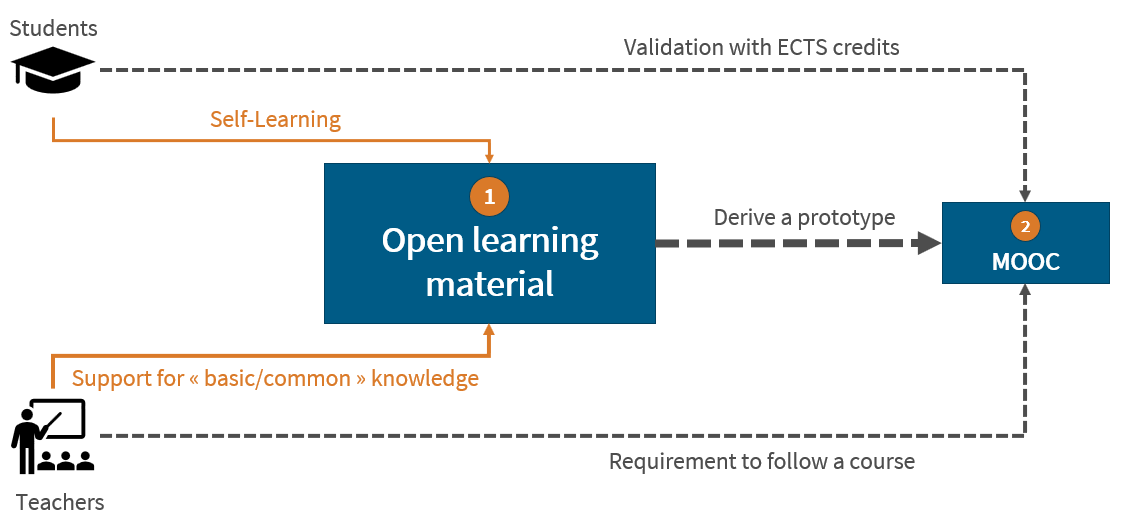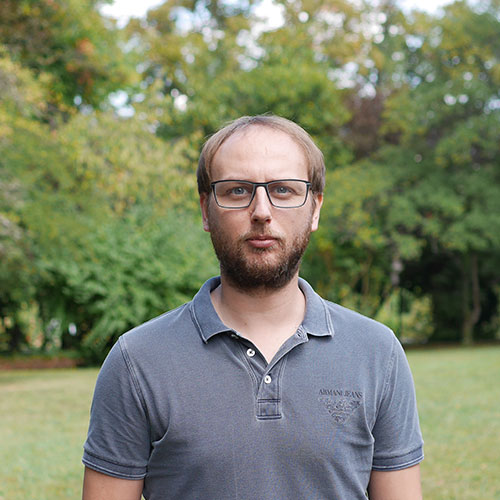Computational Thinking in Social Sciences (2019-2020)
Open and participative learning material for understanding and taking advantage of information and communication technologies in social sciences, created as part of the program P8 Reinforcing Digital Skills in Education.
Note About This Page
The project and the related open learning material are subject to evolve in time, whereas this page is intended as a long-term reference of a specific period of the project. For a more up-to-date description of the available open material, please visit the main page of the project (in French) on EduTechWiki, the public portal that hosts most of the learning resources.
Documents
Quick Contact
- Mattia A. Fritz
- +41 22 379 03 87
- Mattia.Fritz@unige.ch
- See Contributors below for the full list.
Project Description
The project, whose original title is in French, Pensée computationnelle en sciences sociales, provides open and participative learning material for students and reseachers in the social sciences interested in improving their use and understanding of information and communication technologies. The material has been developed mainly for scholars without a formal background in Computer Science and therefore does not need any previous experience. It is also intended for teachers who may benefit from open ended resources as support for their courses.

The project is intended in two phases.
- Initial phase (2019-2020). Creation of open and participative learning material available through a public portal. Students can freely access the material and use it for self-learning. Teachers can refer to it for support or basic common knowledge required in their courses.
- Follow-up phase (to be confirmed). Derive a prototype of a MOOC from the learning material for scaffolding the learning process in a more structured format. Students could in that case validate their progresses with ECTS credits, whereas teachers can use it as a form of requirement.
Open and Participative Learning Material
The learning material adopts a Problem-Solution-Sharing perspective, which provides learners with theoretical, technical and practical know-how to use Information and Communication Technologies (ICT) in the social sciences in order to identify a problem, compute a solution, and share the result with others through open and collaborative tools and platforms.

Computational Thinking with JavaScript
Covering web development and web technologies, especially from an interactive standpoint.
JavaScript material
Computational Thinking with R
Covering Data Science and computational reproducibility of scientific contributions.
R material
Computational Thinking and Making
Covering digital design and fabrication such as 3D printing, laser cutting, or digital embroidery.
Making materialThe material is organized in three strands and it is released under a creative common, non-commercial, share-alike licence. It is hosted on EduTechWiki, an open-access wiki maintened by TECFA since 2006, where all subscribed users can modify it. Registration is free and pending verification to avoid spam.
Contributors
List of the main contributors to the material. Since the material is open, other users of the public portal may have contributed too.

Daniel K. Schneider
Associated Professor
Project director

Mattia A. Fritz
Scientific collaborator
Promoter of the project
MALTT Students
Students of the Master of Science in Learning and Teaching Technologies.
Papers, Conferences and Presentations
Funding
The 2019-2020 phase of the project was funded as part of the program P8 Reinforcing Digital Skills in Education by swissuniversities and Geneva University.

